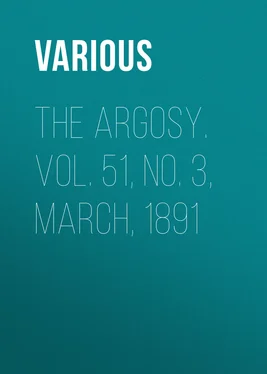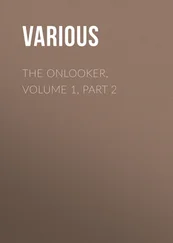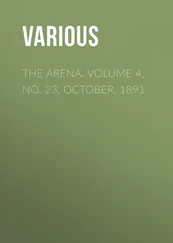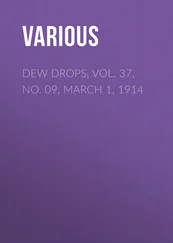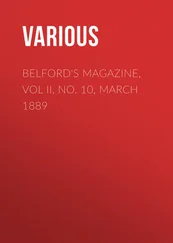Various - The Argosy. Vol. 51, No. 3, March, 1891
Здесь есть возможность читать онлайн «Various - The Argosy. Vol. 51, No. 3, March, 1891» — ознакомительный отрывок электронной книги совершенно бесплатно, а после прочтения отрывка купить полную версию. В некоторых случаях можно слушать аудио, скачать через торрент в формате fb2 и присутствует краткое содержание. Жанр: foreign_antique, periodic, foreign_edu, на английском языке. Описание произведения, (предисловие) а так же отзывы посетителей доступны на портале библиотеки ЛибКат.
- Название:The Argosy. Vol. 51, No. 3, March, 1891
- Автор:
- Жанр:
- Год:неизвестен
- ISBN:нет данных
- Рейтинг книги:4 / 5. Голосов: 1
-
Избранное:Добавить в избранное
- Отзывы:
-
Ваша оценка:
- 80
- 1
- 2
- 3
- 4
- 5
The Argosy. Vol. 51, No. 3, March, 1891: краткое содержание, описание и аннотация
Предлагаем к чтению аннотацию, описание, краткое содержание или предисловие (зависит от того, что написал сам автор книги «The Argosy. Vol. 51, No. 3, March, 1891»). Если вы не нашли необходимую информацию о книге — напишите в комментариях, мы постараемся отыскать её.
The Argosy. Vol. 51, No. 3, March, 1891 — читать онлайн ознакомительный отрывок
Ниже представлен текст книги, разбитый по страницам. Система сохранения места последней прочитанной страницы, позволяет с удобством читать онлайн бесплатно книгу «The Argosy. Vol. 51, No. 3, March, 1891», без необходимости каждый раз заново искать на чём Вы остановились. Поставьте закладку, и сможете в любой момент перейти на страницу, на которой закончили чтение.
Интервал:
Закладка:
"It has been much in my thoughts since I saw you last," said Ducie. "Was the MS. in your own writing, may I ask?"
"It was in my own writing," answered the Russian. "It was a confidential communication intended for the eye of my dearest friend, and for his eye only. It was unfinished when I lost it. I had been staying a few days at one of your English spas when I joined you in the train on the day of the accident. The MS., as far as it went, had all been written before I left home; but I took it with me in my despatch-box, together with other private papers, although I knew that I could not add a single line to it while I should be from home. I have wished a thousand times since that I had left it behind me."
"I have heard of people to whom cryptography is a favourite study," said the Captain; "people who pride themselves on their ability to master the most difficult cipher ever invented. Let us hope that your MS. has not fallen into the hands of one of these clever individuals."
Platzoff shrugged his shoulders. "Let us hope so, indeed," he said. "But I will not believe in any such untoward event. Too long a time has elapsed since the loss for me not to have heard something respecting the MS., had it been found by anyone who knew how to make use of it. Besides, I would defy the most clever reader of cryptography to master my MS. without—Ah, Bah! where's the use of talking about it? Should not you like some tobacco? Daylight's last tint has vanished, and there is a chill air sweeping down from the hills."
As they left the window, Platzoff added: "One of the most annoying features connected with my loss arises from the fact that all my labour will have to be gone through again—and very tedious work it is. I am now engaged on a second MS., which is, as nearly as I can make it, a copy of the first one; and it is a task which must be done by myself alone. To have even one confidant would be to stultify the whole affair. Another glass of claret, and then I will introduce you to my sanctum."
The coloured man who had opened the door for Captain Ducie had been in and out of the dining-room several times. He was evidently a favourite servant. Platzoff had addressed him as Cleon, and Ducie had now a question or two to ask concerning him.
Cleon was a mulatto, tall, agile and strong. Not bad-looking by any means, but carrying with him unmistakable traces of the negro blood in his veins. His hair was that of a genuine African—crisp and black, and was one mass of short curls; but except for a certain fulness of the lips his features were of the ordinary Caucasian type. He wore no beard, but a thin, straight line of black moustache. His complexion was yellow, but a different yellow from that of his master—dusky, passionate, lava-like; suggestive of fiery depths below. His eyes, too, glowed with a smothered fire that seemed as if it might blaze out at any moment, and there was in them an expression of snake-like treachery that made Captain Ducie shudder involuntarily, as though he had seen some loathsome reptile, the first time he looked steadily into their half-veiled depths. One look into each other's eyes was sufficient for both these men.
"Monsieur Cleon and I are born enemies, and he knows it as well as I do," murmured Ducie to himself, after the first secret signal of defiance had passed between the two. "Well, I never was afraid of any man in my life, and I'm not going to begin by being afraid of a valet." With that he shrugged his shoulders, and turned his back contemptuously on the mulatto.
Cleon, in his suit of black and white tie, with his quiet, stealthy movements and unobtrusive attentions, would have been pronounced good style as a gentleman's gentleman in the grandest of Belgravian mansions. Had he suddenly come into a fortune, and gone into society where his antecedents were unknown, five-sixths of his male associates would have pronounced him "a deuced gentlemanly fellow." The remaining one-sixth might have held a somewhat different opinion.
"That coloured fellow seems to be a great favourite with you," remarked Ducie, as Cleon left the room.
"And well he may be," answered Platzoff. "On two separate occasions I owed my life to him. Once in South America, when a couple of brigands had me at their mercy and were about to try the temper of their knives on my throat. He potted them both one after the other. On the second occasion he rescued me from a tiger in the jungle, who was desirous of dining à la Russe . I have not made a favourite of Cleon without having my reasons for so doing."
"He seems to me a shrewd fellow, and one who understands his business."
"Cleon is not destitute of ability. When I settled at Bon Repos I made him major-domo of my small establishment, but he still retains his old position as my body-servant. I offered long ago to release him; but he will not allow any third person to come between himself and me, and I should not feel comfortable under the attentions of anyone else."
Platzoff opened the door as he ceased speaking and led the way to the smoking room.
As you lifted the curtain and went in, it was like passing at one step from Europe to the East—from the banks of Windermere to the shores of the Bosphorus. It was a circular apartment with a low cushioned divan running completely round it, except where broken by the two doorways, curtained with hangings of dark brown. The floor was an arabesque of different-coloured tiles, covered here and there with a tiny square of bright-hued Persian carpet. The walls were panelled with stamped leather to the height of six feet from the ground; above the panelling they were painted of a delicate cream colour with here and there a maxim or apophthegm from the Koran, in the Arabic character, picked out in different colours. From the ceiling a silver lamp swung on chains of silver. In the centre of the room was a marble table on which were pipes and hookahs, cigars and tobaccos of various kinds. Smaller tables were placed here and there close to the divan for the convenience of smokers.
Platzoff having asked Ducie to excuse him for five minutes, passed through the second doorway, and left the Captain to an undisturbed survey of the room. He came back in a few minutes, but so transformed in outward appearance that Ducie scarcely knew him. He had left the room in the full evening costume of an English gentleman: he came back in the turban and flowing robes of a follower of the Prophet. But however comfortable his Eastern habit might be, M. Platzoff lacked the quiet dignity and grave repose of your genuine Turkish gentleman.
"I am going to smoke one of these hookahs; let me recommend you to try another," said Platzoff as he squatted himself cross-legged on the divan.
He touched a tiny gong, and Cleon entered.
"Select a hookah for Monsieur Ducie, and prepare it."
So Cleon, having chosen a pipe, tipped it with a new amber mouthpiece, charged the bowl with fragrant Turkish tobacco, handed the stem to Ducie, and then applied the light. The same service was next performed for his master. Then he withdrew, but only to reappear a minute or two later with coffee served up in the Oriental fashion—black and strong, without sugar or cream.
"This is one of my little smoke-nights," said Platzoff as soon as they were alone. "Last night was one of my big smoke-nights."
"You speak a language I do not understand."
"I call those occasions on which I smoke opium my big smoke-nights."
"Can it be true that you are an opium smoker?" said Ducie.
"It can be and is quite true that I am addicted to that so-called pernicious habit. To me it is one of the few good things this world has to offer. Opium is the key that unlocks the golden gates of Dreamland. To its disciples alone is revealed the true secret of subjective happiness. But we will talk more of this at some future time."
Читать дальшеИнтервал:
Закладка:
Похожие книги на «The Argosy. Vol. 51, No. 3, March, 1891»
Представляем Вашему вниманию похожие книги на «The Argosy. Vol. 51, No. 3, March, 1891» списком для выбора. Мы отобрали схожую по названию и смыслу литературу в надежде предоставить читателям больше вариантов отыскать новые, интересные, ещё непрочитанные произведения.
Обсуждение, отзывы о книге «The Argosy. Vol. 51, No. 3, March, 1891» и просто собственные мнения читателей. Оставьте ваши комментарии, напишите, что Вы думаете о произведении, его смысле или главных героях. Укажите что конкретно понравилось, а что нет, и почему Вы так считаете.
